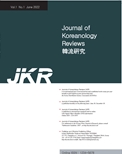- 권한신청
- E-ISSN2950-8835
Qualitative Literature Approach: The Historical Driving Forces in the South Korean Economic Growth
Abstract
Economic growth is one of the significant benchmarks determining a country's sustainable growth. Before WWII, most countries perceived their priority in terms of military strength as they dedicated most of their efforts and resources to creating weapons of mass destruction. The current research aims to establish some of the significant factors that may have contributed to the sustainable and progressive economic growth of South Korea within the 60-year timeframe. Multiple prior studies have attributed the economic growth in South Korea to policy reforms that opened the country to foreign markets. The outstanding increase in the percentage of exports stands out as an indication of the improvement in the quality of goods produced in the country. Finally, in recent years, China has dedicated more resources to research and developments as a strategy to improve innovation within the country and its overall economic growth. Other issues of concern likely to undermine the prospects of the country's economic growth include the limited geographical size, aging population, and limited natural resources. As such, South Korea needs to emphasize innovation and improve the business environment as its main strategy for sustainable economic growth in the future to maintain its continuous economic miracle.
- keywords
- Economic Growth, Historical Review, South Korean Economy, Qualitative Text Analysis
- 다운로드 수
- 조회수
- 0KCI 피인용수
- 0WOS 피인용수














